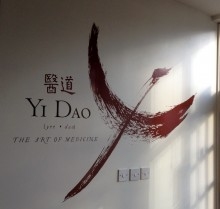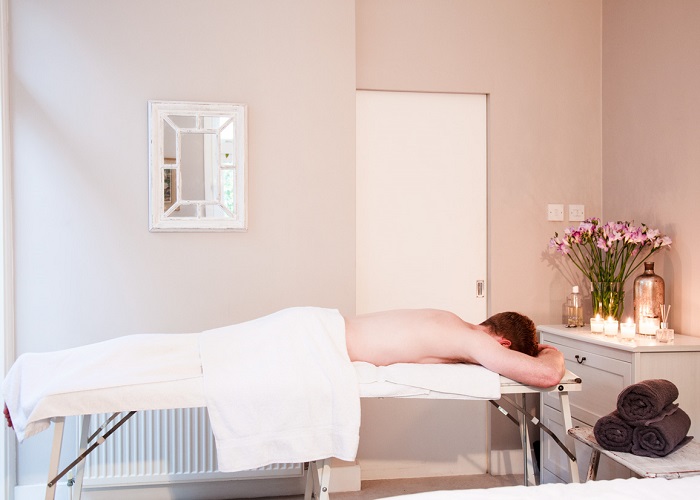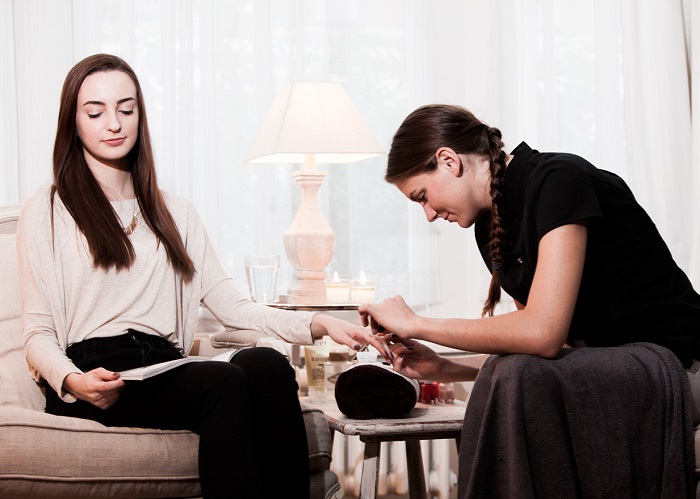In the first of a regular new West Hampstead Life column, my health & beauty correspondent @ZENW6 investigates an alternative to a sports massage at a new Mill Lane clinic. Over the coming months, ZENW6 will look at everything from hair salons to fitness studios in and around West Hampstead. Do with any comments or suggestions for articles.
I wasn’t entirely sure what to expect when I was invited to the Yi Dao clinic for a complimentary Tui Na massage. Google had helped get me up to speed: it’s a traditional Chinese physical therapy encompassing eastern body movement principles such as Tai Chi. But that wasn’t very detailed, so I was slightly apprehensive. Much as I enjoy a relaxing massage, was this the latest extreme health fad that I’d soon see endorsed by Madonna in the pages of Grazia? Would there be chanting?

Husband and wife team Zarig Cooper and Conny Duxbury, who took over the clinic (formerly The London Health Clinic) on Mill Lane around three months ago, were on hand to explain more. Both passionate and knowledgeable about eastern healthcare techniques, they talked me through the treatments they offer. They are both experienced Tui Na practitioners who have studied and trained in Chinese hospitals. Conny also specialises in acupuncture. I got to look at some interesting photographs of their last visit to China, including pictures of dedicated Tui Na massage wards; apparently it’s a very mainstream treatment offered in hospitals there and Conny’s dream is to make Tui Na therapy mainstream here in the UK.
“When people suffer from back pain they don’t need to automatically reach for painkillers or anti-inflammatories, or in extreme cases undergo unnecessary surgery,” she explains. Having been a Tai Chi teacher for 10 years (and with the enviable posture to prove it), she firmly believes that most people’s muscular aches and pains are caused by inefficient movement and bad posture, which put undue stress on the body over time.
What’s different about Tui Na from massage techniques we’re more familiar with? Zarig and Conny argue that it’s not a quick-fix solution for specific aches and pains that can then recur later, but more a way of living and moving. So, although they use Tui Na therapy to treat injuries, for example as an alternative to conventional sports massage, Yi Dao’s wider mission is to analyse people’s lifestyles and observe their breathing patterns and movements to help them break ingrained “patterns of tension”.
Zarig showed me around the clinic – there’s a nice softly-lit treatment room for western-style oil based massage but the Tui Na room was a little more austere and clinical, though still comfortable. My session started with a consultation to talk through my problems – I often suffer from a stiff neck caused by long hours sitting in front of a computer screen. Zarig demonstrated how limited my movement is; for example, I couldn’t touch my chin to my collarbone. We also discovered I have a chronic inability to relax; after a long day at the office, my back muscles were tense just lying on the massage table. There was a lot of work to be done here.
The massage wasn’t all relaxing; the tension in my back and shoulders meant that at times it was slightly painful and a bit ticklish. When I got used to the pressing / rolling movement it became much more enjoyable and soporific and I started to believe Zarig’s claim that some regular clients fall asleep mid-massage. I liked the fact that this massage can be carried out fully-clothed; there was no awkward disrobing or oil transferred onto your clothes.
Zarig’s style is down-to-earth. He was quick to reject any talk of “mystical energy flow” or any of the other unconventional terms often associated with alternative medicine. Rather, he believes that stress contributes to many conditions and that this manifests itself in physical terms. In short, the cumulative effect of tension and stress leaves the body in a tense and weakened state. I suspect it may be unrealistic for some to commit to incorporating these principles into their daily life, in which case the effect of the massage alone is not unlike a conventional sports massage or osteopathy session.
Would I go again? Yes, probably. I certainly left the clinic feeling more relaxed, calm and healthy than I had for a long time, and with a new found superpower of being able to turn my head to the right. Tui Na wouldn’t be for everyone – those expecting an indulgent treat may come away disappointed – but I liked the straightforward, scientific approach and think it would be a good treatment for those with sports injuries, or for anyone with ongoing mild aches and pains caused by the stresses of everyday life. If you’re looking for Christmas presents, you can get £30 vouchers for an hour’s Tui Na massage or oil massage (both normally £50). There’s no chanting.






